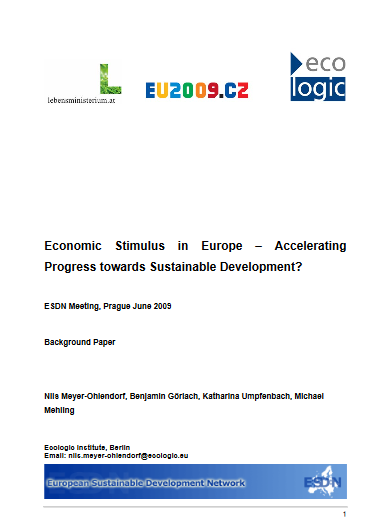In response to the economic crisis, many governments have adopted a number of stimulus packages. These packages present an opportunity for sustainable development, but the greater opportunity lies in the fact that the crisis provides momentum for changes of unsustainable structures. The unprecedented depth and magnitude of the economic crisis has put many structures into question that were considered untouchable before: the nationalisation of banks in some countries appeared absurd only months ago and significantly tighter regulation of financial markets was unthinkable before the fall of 2008.
Against this backdrop, Ecologic Institute analyses the stimulus packages of six EU Member States - Austria, France, Germany, Poland, Slovenia and the UK. The project puts a focus on the potential of the packages to contribute to the implementation of the EU Sustainable Development Strategy and the Lisbon Strategy. The paper concludes that today is a perfect moment in time to address the deeper and structural causes of the environmental and economic crisis. Importantly, there are a number of causes of the environmental crisis that coincide with the root causes of the present financial and economic crisis, such as urban sprawl, under-regulated financial markets or inefficient use of resources. The project was funded by the Austrian Federal Ministry of Agriculture, Forestry, Environment and Water Management. Its results were presented at this year's meeting of the European Sustainable Development Network (ESDN).
The paper [pdf, 334 KB, English] is available for download.




